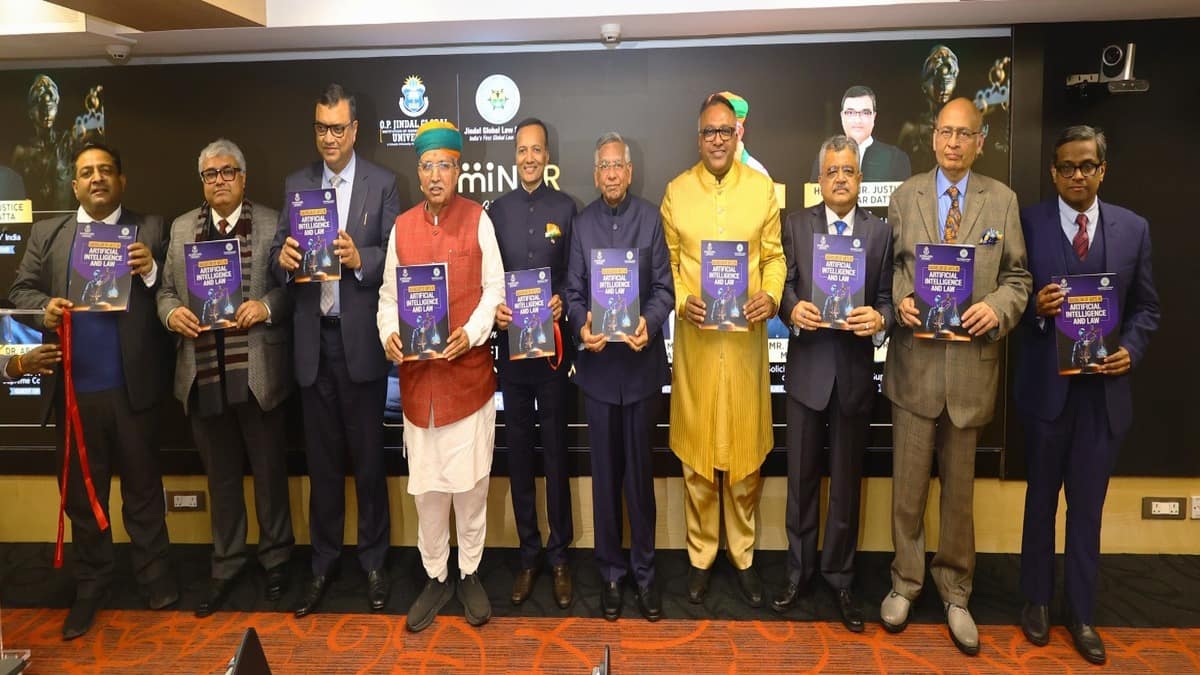Jindal Global Law School launches BA in AI and law; Union law minister as chief guest
Suviral Shukla | January 18, 2025 | 04:14 PM IST | 2 mins read
The newly-launched BA programme aims to bridge the gap between technology and the legal professions; union law minister Arjun Ram Meghwal was chief guest.

NEW DELHI: Jindal Global Law School (JGLS), under OP Jindal Global University (JGU), has launched Bachelors of Arts (BA) programme in artificial intelligence (AI) and law during a seminar today, January 18. Union law minister Arjun Ram Meghwal was the chief guest.
Addressing the audience at the event titled “Artificial Intelligence and Law”, Meghwal said: "We are living in the 21st century, and regressing is not an option. We must embrace the present and focus on how to use technology effectively while addressing its challenges. The human element will always remain essential, and if we advance alongside it, technology can assist in many areas, such as resolving pending court cases and facilitating translations."
The minister also emphasised the concerns relating to the use of AI, including ethical issues and the need for data and privacy protection. He encouraged the public and the audience to share their suggestions and perspectives on these matters, the university said.
Jindal Global Law School: BA in AI and law
The newly-launched BA programme aims to bridge the gap between technology and the legal professions. The course will teach students about AI technologies alongside core legal principles along with technology law, AI policy-making, compliance, and ethical government, the university added.
Tushar Mehta, solicitor general of India, stated: “Artificial Intelligence (AI) has become a global phenomenon, a topic of significant discussion and legislative focus, with around 33 laws passed worldwide in 2022 alone, excluding India.”
Supreme Court judge Justice Dipankar Dutta said that the “floodgates of thoughts and opinions” that have been expressed about the impact of AI on the legal profession make it difficult to predict the change it will ultimately bring to legal services.
Naveen Jindal, JGU’s chancellor and member of parliament, along with other legal scholars, jurists, policymakers, and industry leaders also participated in the event.
Also read Chandigarh University hosts AI Higher Education Summit 2025 at UP campus
AI and Law: Boon or Bane for legal system?
The potential risks and challenges of blending AI into law were also discussed during the event. The points of discussion were as follows:
Promoting enhanced legal analytics: Tools such as predictive analytics, Lex Machina in the United States can predict case outcomes based on historical data.
Addressing bias and discrimination in AI: One of the major concerns in India, is bias in AI systems. Tackling these biases is essential to ensure equitable outcomes in legal processes.
AI in Cross-Border Disputes: Resolution platforms powered by AI, are being used for arbitration, streamlining cross-border trade disputes.
Cybersecurity and Privacy Challenges: AI-driven breaches of data security, such as the infamous Pegasus spyware case, have exposed vulnerabilities in legal frameworks for data protection.
Automated Law Enforcement: The use of AI in surveillance raises significant concerns about privacy, civil liberties, and human rights violations.
Follow us for the latest education news on colleges and universities, admission, courses, exams, research, education policies, study abroad and more..
To get in touch, write to us at news@careers360.com.